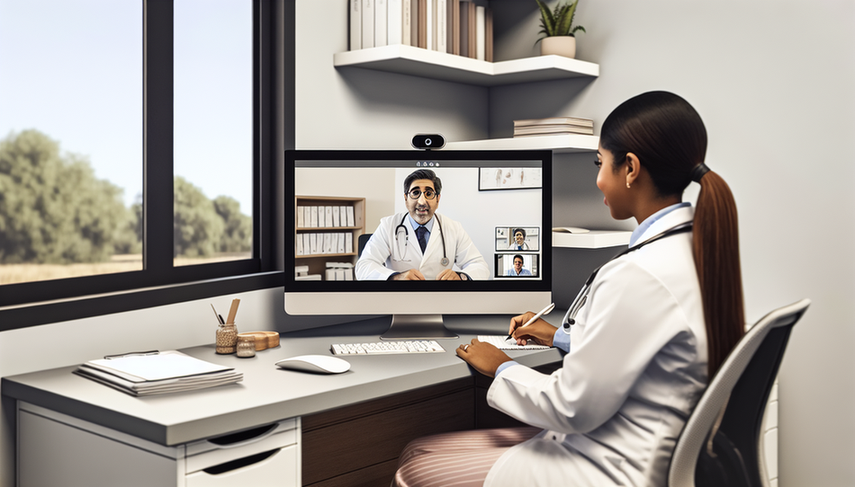Second Medical Opinions Through Online Consultations: A Path to Collaborative Diagnosis in Complex Cases

In the digital age, online consultations have revolutionized the way healthcare professionals interact and collaborate. This shift has facilitated access to second medical opinions, particularly in complex cases, enabling a more accurate and efficient collaborative diagnosis. Technology has not only improved communication among physicians but has also democratized access to experts worldwide, which is crucial in areas with limited access to specialists.
The Rise of Online Consultations and Their Impact on Collaborative Diagnosis
Online consultation platforms have proven to be valuable tools for knowledge exchange and clinical decision-making. An example of this is the platform I-DTI, which focuses on organ donation and transplantation, providing a second opinion service that has been regularly consulted by healthcare professionals in over 20 countries. This platform has demonstrated its feasibility in supporting healthcare professionals in knowledge sharing and communication, ensuring access to international best practices.
In the field of fertility preservation, a professional online consultation group has allowed clinicians to discuss and debate controversial topics, thereby improving clinical decision-making. According to a study, most participants reported gaining knowledge and assistance in clinical decision-making due to their participation in the discussion group (see study).
Moreover, telemedicine has proven effective in diagnosing and treating complex diseases such as skin cancer. A study compared the accuracy of diagnoses made by artificial intelligence and specialists, finding that AI technology is accurate and practical for diagnosing suspicious pigmented skin lesions in a specialized setting (see study).
Conclusions
Second medical opinions through online consultations have opened a new pathway to a more effective collaborative diagnosis. These platforms not only enhance diagnostic accuracy but also foster collaboration among healthcare professionals, which is essential in complex cases. As technology continues to advance, it is crucial for healthcare providers to promote the use of these innovative solutions to improve access to knowledge and the quality of medical care.
References
- [1] I-DTI, a Second-Opinion Platform Related to Organ Donation and Transplant Between Health Care Professionals
- [2] What are the most common controversial clinical issues in fertility preservation? A content analysis of a collaborative professional online consultation group
- [3] Comparison of humans versus mobile phone-powered artificial intelligence for the diagnosis and management of pigmented skin cancer in secondary care: a multicentre, prospective, diagnostic, clinical trial
Created 24/1/2025
